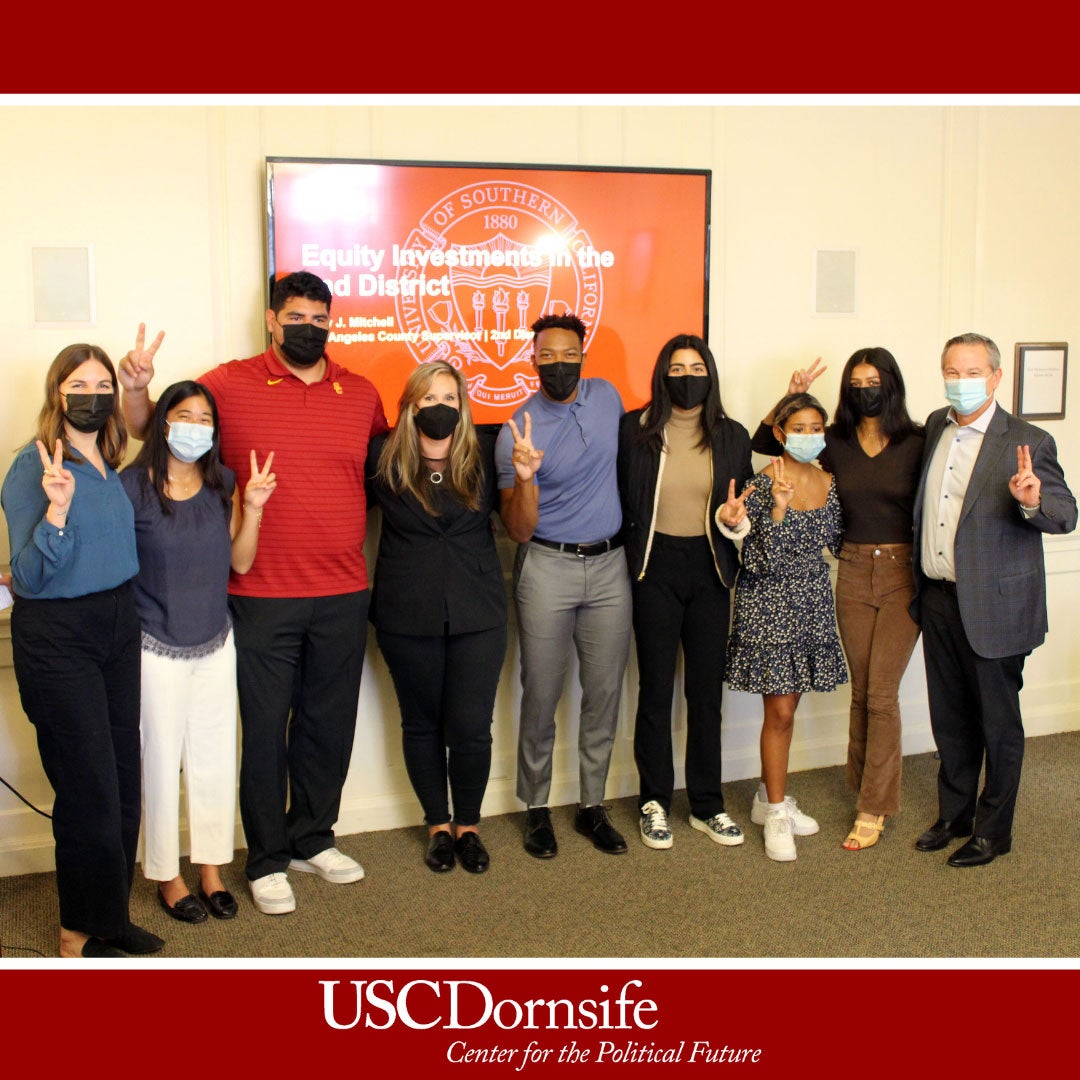Fall 2021
Equity Investments in LA County 2nd District

For the fall 2021 semester, our POSC 395 Policy Research Internship students researched how Los Angeles County’s 2nd district could provide more equitable services and investments for residents. This project required students to research Guaranteed Basic Income (GBI) best practices, track poverty and housing security in Los Angeles, and identify populations that will benefit from GBI. Students assisted a professional research team in the implementation of a GBI program in Los Angeles. They presented their extensive research and policy recommendations for best practices in the future to our partner, Los Angeles County Supervisor Holly Mitchell’s Office.
Katelyn Eng, a freshman majoring in Political Economy, said this about her research experience: “As part of this research group, we were looking at how to deliver equitable services in the 2nd District, specifically Guaranteed Basic Income and models for economic opportunity. Individually, I researched case studies for community investment and small business support in the wake of COVID-19. This experience showed me there is hope beyond the pandemic; the American Rescue Plan gives Los Angeles County an unprecedented opportunity to invest in its residents. I am humbled and grateful to have played a small part!”
Project: Equity Investments in Los Angeles County 2nd District
USC Students: Meghan Anand, Will Chambers, Katelyn Eng, Chloe Hirth, Divya Ria Jakatdar, and Damian Lopez
Research Question: How can we provide more equitable service delivery in the wake of COVID-19 and make disproportionate investments in the 2nd supervisorial district?
Policy Recommendations:
- Utilize direct cash payments via direct cash or prepaid card, and limit pressures on participant spending.
- Work with entirely state-funded agencies to secure program-wide waivers.
- Data-share with the federal/state government and advertise more to increase CTC enrollment of poor non-filers.
- If using any preexisting form survey, add a curated 10-20 question addendum, operating independent of any combined section or subsection scores.
- Separate the institutions that will perform data collection and the eventual final analysis.
- Employ dedicated mental and psychological health professionals to conduct individual FTF sessions with participants quarterly.
- Offer a nominal ($5-$15) bonus every time a participant (control & active groups) completes an optional monthly survey/check-in.
Read the group’s full research presentation.
Watch the video presentation on Equity Investments in LA County 2nd District.